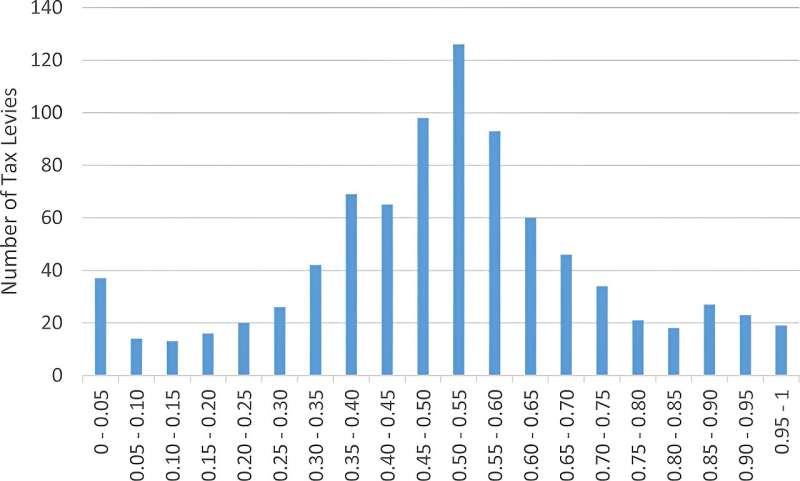This article has been reviewed according to Science X's editorial process and policies. Editors have highlighted the following attributes while ensuring the content's credibility:
fact-checked
trusted source
proofread
Economist finds link between park funding, home values

Ohio residents who vote against tax renewals for parks and recreation spending could be costing themselves a significant amount of wealth in the form of their homes' value, a University of Cincinnati economist found.
David Brasington, Ph.D., the James C. and Caroline Kautz Chair in Political Economy and professor of economics in UC's Carl H. Lindner College of Business, studied the effect of cutting funding for the maintenance of local parks and recreational areas on housing values for a research article that was published in Journal of Regional Science.
Brasington found Ohio communities that vote to renew parks and recreation spending see 13% higher home values three years after the vote than similar communities that voted against the tax renewals. For the typical household, a vote against tax renewals saves $70 a year in taxes but costs $30,000 in house values.
"I was surprised by how strong the magnitude was," Brasington said. "A 13% difference in house prices is really big. I was surprised a relatively small change in park funding could cause such a big change in house prices over time."
In his research, Brasington focused on communities that according to data from the U.S. Census Bureau share similar demographic and economic characteristics. The only discernible difference was that some of them narrowly voted to renew tax levies while others narrowly voted against renewing their levies.
Using a housing data set, Brasington compared home values in the communities from 1991 through 2016.
While house prices didn't reflect a change immediately, three years after the votes the communities that approved the park and recreation maintenance saw 13% higher house values compared to the communities that voted against their levies. In subsequent years, the gap continued to grow.
"I didn't find any effects the first year after the vote or the second year after the vote, but they were noticeable three years later," Brasington said. "The findings I have are consistent with the idea that right after you vote to cut parks and recreation taxes and funding, you don't notice any effects on house prices, but as time goes on, maybe this decrease in maintenance funding starts to be noticeable and maybe it's reflected in house prices."
The data doesn't mean that communities that vote against renewing tax levies see a 13% decrease in housing values or that communities that vote in favor of their levies see a 13% increase. Rather, an example could be one community seeing a 7% increase in housing values while another sees a 20% increase, Brasington said.
"When a local government offers services, they're competing with other local governments for residents and businesses to build their tax base, so they want to offer good services that people care about," he said.
The data shows parks are a service that people care about, Brasington said. It also shows that Ohio's local parks might be underfunded.
"Parks and recreation spending seems worth it in Ohio," he said. "There may be places where it isn't, there may be places where it's really, really worthwhile. But overall the parks and recreation spending is worth it in Ohio because the estimate is just an average across all the communities."
Brasington's findings on home prices aligns with his previous research on the value of local park funding. In a research article published in 2021, Brasington found communities that renewed tax funding for local parks had more residential development than those that cut park taxes and funding.
More information: David M. Brasington, The effect of open space maintenance spending on house prices, Journal of Regional Science (2023). DOI: 10.1111/jors.12655
Provided by University of Cincinnati




















